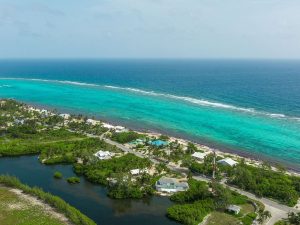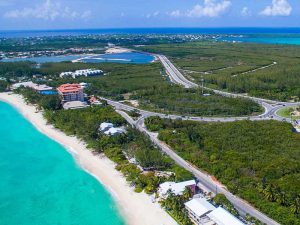Cayman Reinsurance
In recent years, the Cayman Islands has emerged as a powerhouse in the reinsurance sector, experiencing remarkable double-digit growth. With a surge in reinsurers establishing their presence in Cayman, this article explores the diverse array of non-life entities flocking to the islands and the compelling factors driving their interest in Cayman reinsurance.
Cayman’s Appeal to InsurTech, Non-Life, and Crypto Players
A notable trend is the increasing presence of InsurTech companies, predominantly from the United States but also from Hong Kong, Singapore, and Europe, alongside traditional U.S. insurance carriers venturing into Cayman’s reinsurance landscape. InsurTech, akin to FinTech, harnesses technology to disrupt the insurance industry. These companies are driven by the belief that the insurance sector is ripe for innovation and can benefit from ultra-customized policies, social insurance, and dynamic premium pricing based on data from Internet-enabled devices.
General Property and Casualty (P&C) carriers and managing general agents/underwriters (MGA/MGUs) are also discovering substantial value in affiliating with Cayman reinsurance infrastructure.
The rapidly evolving crypto space has added another dimension to Cayman’s allure. As cryptocurrencies and related entities gain mainstream acceptance, the demand for insurance products to support them has surged.
Can’t find the information you are looking for, use the
Cayman Islands GPT
Related Topics
Key Drivers Behind Cayman’s Reinsurance Growth
Several factors have contributed to the exponential growth of reinsurance entities in Cayman:
- Bermuda’s Shift to EU Solvency II: Bermuda, traditionally a dominant market for U.S. reinsurance, adopted the EU Solvency II (SII) equivalency route. This decision imposed additional costs on U.S.-focused reinsurance programs, making Cayman an attractive alternative.
- Global Reinsurance Market Trends: The global reinsurance market has experienced a hardening, with insurers and reinsurers increasing pricing and retention requirements while limiting capacity and coverage scope. This has encouraged insurers to explore alternative placement and retention structures.
- Cayman’s Capital Benefits: The Cayman Islands Monetary Authority (CIMA) offers proportionate capital requirements, making it an appealing choice for U.S. carriers seeking consolidated capital benefits through Cayman reinsurance companies.
- Client Recommendations: New-generation InsurTech entities actively collaborate and share their experiences. CIMA and the Cayman industry have built a reputation and become the preferred domicile for such businesses.
- Cayman Government’s Responsiveness: Cayman’s government has shown a willingness to innovate and adapt to evolving market conditions, further bolstering its attractiveness.
Solvency and Capital Frameworks
The Flexible Cayman Model:
Cayman’s approach to solvency and capital requirements stands out for its flexibility, making it an attractive jurisdiction for reinsurance entities. Unlike some other international jurisdictions, Cayman does not follow the EU Solvency II (SII) framework, which imposes rigid requirements. Instead, it adopts a more adaptable and business-friendly model.
Capital Requirements Staggered to Fit Business Size:
One key feature of Cayman’s capital framework is its tiered approach. Reinsurance companies in Cayman are classified into different categories, with each category having its own set of capital requirements. This tiered system takes into account the size and scale of the reinsurance operation, allowing smaller entities to operate with more manageable capital obligations.
For example, non-life Class B(iii) reinsurance entities are subject to capital requirements that vary depending on their net earned premium. The initial capital requirement is set at 15 percent of the first $5 million in net earned premium, with a minimum of $200,000. For the next $15 million, the requirement drops to 7.5 percent, and for premiums exceeding $20 million, the requirement further decreases to 5 percent. This tiered approach recognizes that smaller reinsurers may not have the same capital resources as their larger counterparts but still allows them to participate in the market.
Collateralization and Admissibility
One noteworthy aspect of Cayman’s capital framework is its emphasis on collateralization. Reinsurance liabilities under these programs are required to be fully collateralized, ensuring that onshore insurers can claim full admissibility for reinsurance with the Cayman reinsurer. This collateralization adds a layer of security and stability to the reinsurance market, reassuring both insurers and policyholders that claims will be paid promptly and reliably.
Tailored Capital Ratios
Cayman reinsurers often establish a fixed capital ratio of net earned premium to surplus that aligns with their specific business needs. This approach allows reinsurers to tailor their capital requirements to their unique circumstances. Factors such as earned premium, commission structures, loss ratios, claim pay-out patterns, and the length of the tail in the program all influence the collateral requirements. CIMA closely monitors these metrics to ensure that outstanding liabilities are backed by credible assets, maintaining the integrity of the reinsurance market.
Cayman’s Strategic Choice
One of the most significant advantages of Cayman’s capital framework is that it is not compelled to pursue SII equivalency. Given that a majority of the Cayman Islands’ international insurance industry’s risks are North America-based, the SII framework simply does not align with the jurisdiction’s profile. Consequently, CIMA has chosen to develop a more practical regulatory model that caters to the needs of potential U.S. start-ups. This strategic choice has been a pivotal factor in establishing Cayman as the preferred jurisdiction for new reinsurance platforms, especially in the InsurTech, Crypto, and non-life sectors.
Innovation and the Role of MGAs
The Rise of MGAs:
Managing General Agents (MGAs) have become pivotal players in the insurance and reinsurance industry, particularly in the Cayman Islands. These entities play a crucial role in driving innovation by acting as intermediaries between insurers or reinsurers and the insured parties. MGAs specialize in underwriting risks, policy administration, and claims management, often focusing on niche markets or specific lines of business.
Focus on Specialization:
One of the key reasons MGAs contribute to innovation is their focus on specialization. Many MGAs are established with a specific niche in mind, whether it be auto insurance, niche travel policies, or emerging risks like cyber insurance. This specialization allows them to deeply understand the unique needs and risks associated with their chosen market, which in turn, enables them to innovate more effectively.
Bridging the Gap for Innovators:
In the Cayman reinsurance landscape, MGAs often act as a bridge between innovators, such as InsurTech start-ups, and the broader reinsurance market. InsurTech firms, in particular, tend to be highly specialized and innovative but may lack the underwriting and risk management expertise required to bring their products to market. MGAs provide the necessary expertise and infrastructure to evaluate, underwrite, and distribute these innovative insurance products.
Enabling Participation in Underwriting Programs:
Many disruptors and start-ups in the insurance industry begin as MGAs. In the Cayman Islands, having a Cayman reinsurance vehicle allows these MGAs to actively participate in their own underwriting programs. This participation is viewed favorably by their commercial reinsurance support. In a hardening rate environment, where insurance pricing is on the rise, having a stake in the underwriting program can lead to better terms, ultimately impacting program economics positively.
Impact on Reinsurance Support:
For reinsurance entities, partnering with MGAs that embrace innovation can be advantageous. MGAs with innovative approaches to underwriting, claims management, and risk assessment can offer a more attractive value proposition to reinsurers. Reinsurers are increasingly seeking partners who can bring fresh perspectives and effective risk management strategies to the table, and innovative MGAs can fulfill this role.
Regulatory Support in Cayman:
The regulatory environment in the Cayman Islands is conducive to innovation and collaboration between MGAs and reinsurers. The flexibility in capital requirements and the willingness of the Cayman Islands Monetary Authority (CIMA) to adapt to evolving market conditions create an environment where MGAs can thrive and contribute to the growth of innovative reinsurance solutions.
Catalyzing Innovation Ecosystem:
In summary, MGAs in the Cayman Islands are playing a critical role in catalyzing the innovation ecosystem within the reinsurance sector. They facilitate the entry of innovative players, streamline underwriting processes, and bridge the gap between traditional reinsurers and emerging risk-takers. By specializing in niche markets and embracing technological advancements, MGAs are not only shaping the future of reinsurance but also driving growth and competitiveness in the Cayman Islands’ reinsurance landscape. Their ability to adapt to changing market dynamics and collaborate with innovative start-ups positions them as key players in the evolving world of reinsurance.
Cayman’s Evolving Business Environment
The Cayman Islands is renowned as one of the world’s most efficient international financial centers. It boasts a robust infrastructure that supports high-caliber financial transactions and upholds values of stability, integrity, and professionalism. Recent legislative changes align Cayman with global standards while embracing innovations like transacting in cryptocurrencies and smart contracts.
The Island Life
Executives establishing a presence in Cayman benefit from softer advantages, including long-term residency, unrestricted property ownership, lower operating costs, quality education, healthcare, and tax advantages.
Regulation and Legal Framework in Cayman Reinsurance
Cayman maintains a well-regulated financial system based on English Common Law. Its legal system is supported by a respected court system and prioritizes integrity and transparency. The jurisdiction’s commitment to international cooperation ensures its effectiveness on a global scale.
Common Law Tradition
The Cayman Islands’ legal system is rooted in the English Common Law tradition, providing a solid and familiar foundation for businesses operating in the jurisdiction. This legal framework ensures a level of predictability and stability that is highly valued by international companies, including reinsurance entities.
Final Court of Appeal
One distinctive feature of the Cayman legal system is that its final court of appeal is the Privy Council in London. This connection to the Privy Council instills confidence in the jurisdiction’s legal processes, as decisions can ultimately be reviewed by a respected and impartial authority.
Balance Between Privacy and Transparency
The Cayman Islands maintains a delicate balance between privacy and transparency. While the jurisdiction respects the legitimate right to privacy for individuals and businesses, it also has mechanisms in place for tax transparency. This approach aligns with global efforts to combat tax evasion and money laundering while safeguarding confidentiality where appropriate.
Tax-Neutral Jurisdiction
Cayman is often referred to as a tax-neutral jurisdiction. It does not levy direct taxes on individuals or corporations, including those involved in reinsurance. This tax-friendly environment appeals to businesses seeking to optimize their financial structures and retain more of their earnings.
Regulatory Adaptability
Cayman’s regulatory framework is known for its adaptability. It has the flexibility to respond to evolving market conditions and international standards. This adaptability ensures that regulations remain relevant and effective in a rapidly changing global financial landscape.
Proportionate, Risk-Based Regulation
Cayman is a strong proponent of proportionate, risk-based regulation. This approach means that regulations are tailored to the specific risks and activities of reinsurance entities. It avoids imposing unnecessary burdens on businesses, allowing them to operate efficiently while maintaining a high level of prudential oversight.
International Cooperation Agreements
The Cayman Islands actively participates in international cooperation agreements related to tax information exchange, anti-money laundering (AML), and combating the financing of terrorism (CFT). These agreements demonstrate the jurisdiction’s commitment to global regulatory standards and its willingness to cooperate with international authorities.
Robust Regulatory Oversight:
Reinsurance entities in Cayman benefit from robust regulatory oversight by the Cayman Islands Monetary Authority (CIMA). CIMA is responsible for supervising and regulating the financial services industry, ensuring that reinsurance companies adhere to applicable laws and regulations.
Efficient and Respected Court System
Cayman’s court system is known for its efficiency and respect for contractual arrangements. This efficiency is particularly valuable in resolving disputes and enforcing reinsurance contracts, contributing to the jurisdiction’s reputation for legal reliability.
Facilitating International Business:
The Cayman Islands’ regulatory and legal framework is designed to facilitate international business transactions. This makes it an attractive domicile for reinsurance entities that conduct business globally, as they can navigate cross-border transactions with ease.
The Cayman Islands offers a regulatory and legal framework that combines the stability of the English Common Law tradition with the adaptability required in today’s rapidly evolving financial world. Its commitment to proportionate, risk-based regulation, international cooperation, and tax neutrality positions it as an ideal jurisdiction for reinsurance entities seeking a secure and business-friendly environment. Whether for underwriting, claims management, or other reinsurance activities, the Cayman Islands provides a solid legal foundation for businesses to thrive while maintaining the highest standards of transparency and compliance.
Reinsurance Service Providers
Cayman boasts a diverse client base of major international companies, financial institutions, and governments. This is attributed to the high-quality professionals, including insurance managers, lawyers, auditors, actuaries, and investment service providers, who choose to operate in Cayman.
Continued Growth in the Industry
Cayman’s unwavering commitment to growing the reinsurance sector, coupled with its favorable environment for InsurTech, crypto, and non-life reinsurance entities, positions it as the premier domicile in these domains. The future holds the promise of continued growth, with Cayman at the forefront of the reinsurance frontier.
This article was written with the assistance of AI driven insights and prompted by Fevi Yu, Our Web Administrator and Content Manager. It was edited by Cayman.com.ky Editor and resident of the Cayman Islands. All articles have been checked to ensure the information provided is accurate, most of our sources are Cayman government websites, Cayman Orgs or Associations. For additional information please email [email protected]








